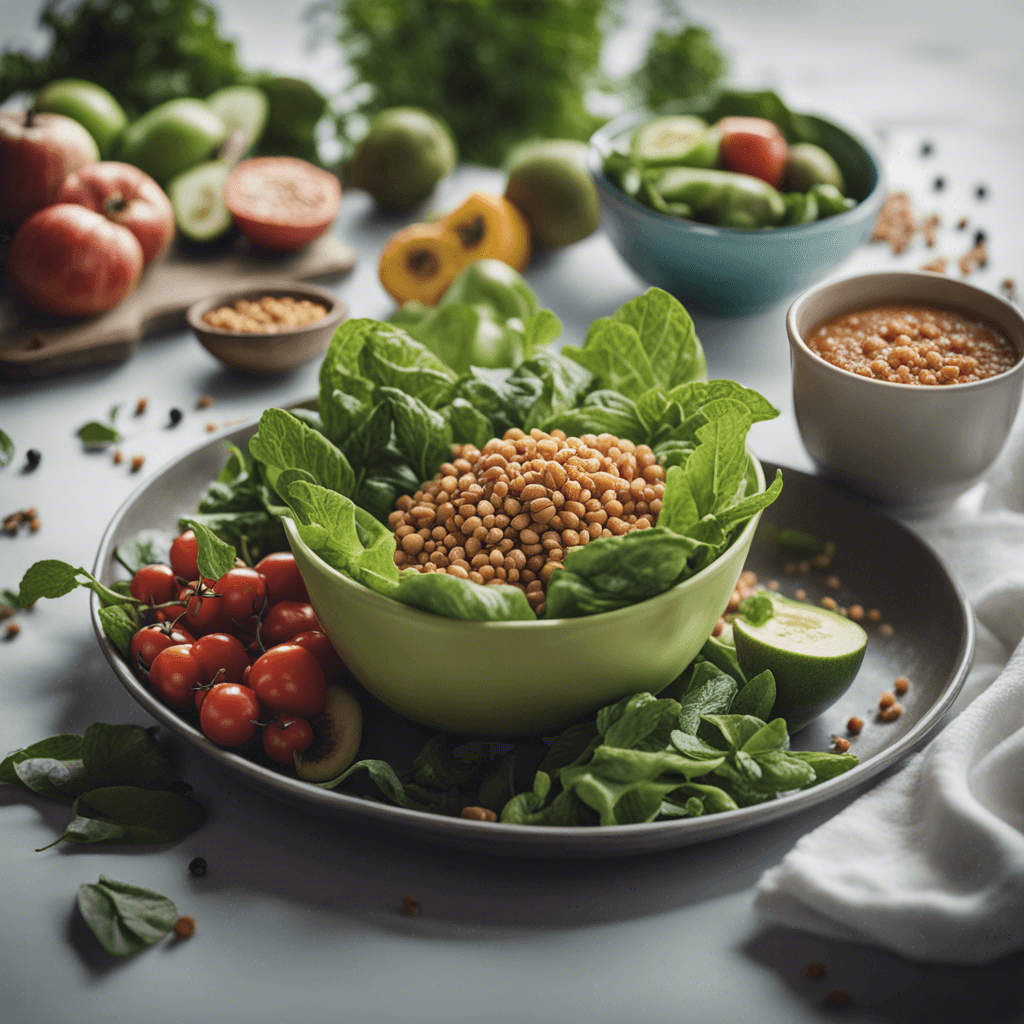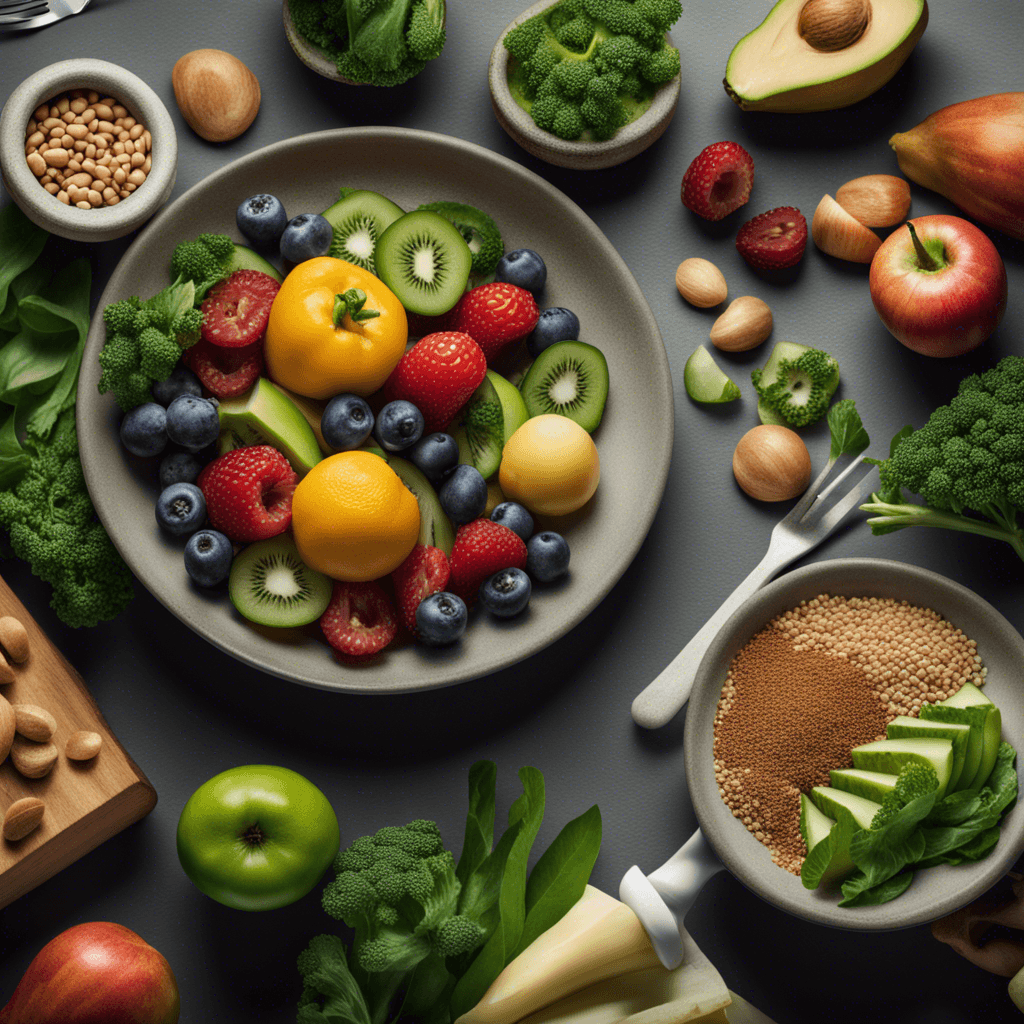Transitioning to a Plant-Based Diet: Tips for a Healthier Lifestyle
As the world becomes increasingly aware of the importance of health and sustainability, many individuals are exploring the benefits of a plant-based diet. Transitioning to a plant-based lifestyle can seem daunting at first, but with the right tools and mindset, it can lead to numerous health improvements and a more ethical way of living. Studies have shown that adopting a plant-based diet can significantly reduce the risk of chronic diseases, improve digestion, and contribute to weight management. Understanding the fundamentals of plant-based nutrition can help you make informed choices that align with your health goals and values.

Moreover, the transition to a plant-based diet is not just about what you eat but also about adopting a holistic approach to wellness. This includes being mindful of hydration, as the effects of dehydration on wellbeing can negate the benefits gained from healthier eating habits. By incorporating a variety of whole foods and learning effective meal planning strategies, you can create a balanced diet that nourishes your body and supports your overall lifestyle.
Understanding Plant-Based Nutrition
Before diving into the nuances of transitioning to a plant-based diet, it’s essential to understand what constitutes plant-based nutrition. At its core, a plant-based diet emphasizes whole, minimally processed foods derived from plants, including fruits, vegetables, legumes, nuts, seeds, and whole grains. Unlike vegetarianism, which may still include dairy and eggs, a fully plant-based diet excludes all animal products, making it a more stringent lifestyle choice.
When beginning this transition, one of the first steps is to educate yourself on the nutritional aspects of a plant-based diet. It’s crucial to ensure that you are getting adequate amounts of essential nutrients such as protein, iron, calcium, omega-3 fatty acids, and vitamin B12. For example, legumes, lentils, and chickpeas are excellent sources of protein, while nuts and seeds provide healthy fats. Incorporating a variety of colorful fruits and vegetables not only adds flavor but also ensures a diverse intake of vitamins and minerals.
The Importance of Meal Planning
Effective meal planning is a cornerstone of successfully transitioning to a plant-based diet. It helps to eliminate the guesswork and ensures that you have nutritious options readily available. Start by dedicating a few hours each week to plan your meals. Try to create a balanced plate that consists of a source of protein, healthy fats, and a variety of colorful vegetables. For instance, a simple meal could include quinoa, roasted chickpeas, and a medley of steamed broccoli, carrots, and bell peppers.
Additionally, batch cooking can save time and reduce the stress of daily cooking. Preparing large quantities of plant-based staples such as grains, beans, and roasted vegetables can provide a foundation for quick meals throughout the week. You can easily mix and match these components to create different dishes, ensuring variety without significant effort.
Tips for a Healthier Lifestyle Transition
Transitioning to a plant-based diet requires not only a change in food choices but also adjustments in lifestyle. To facilitate a smoother transition, consider implementing gradual changes rather than an all-or-nothing approach. Start by incorporating a few plant-based meals each week and gradually increase the frequency as you become more comfortable. This method allows your palate to adjust to new flavors and textures while minimizing feelings of deprivation.
Another important tip is to seek out community support. Engaging with others who are also transitioning to a plant-based lifestyle can provide motivation, tips, and a sense of camaraderie. Online forums, social media groups, or local meet-ups can be excellent resources for sharing recipes, experiences, and encouragement. Many individuals find that connecting with others who share similar dietary goals enhances their commitment and success.
Substitutions and Alternatives
One of the challenges many face when shifting to a plant-based diet is finding suitable substitutes for their favorite foods. Fortunately, there are many plant-based alternatives available today that can satisfy cravings while keeping within dietary guidelines. For example, instead of traditional dairy milk, you can experiment with almond, soy, or oat milk, each offering distinct flavors and nutritional profiles.
Moreover, plant-based versions of meat products have become increasingly popular and are often crafted from ingredients like pea protein, soy, or seitan. This allows for familiar dishes, such as burgers or tacos, to be recreated in a plant-based format. Exploring these alternatives can help ease the transition, making it feel less like a sacrifice and more like an exciting culinary adventure.
Practical Strategies for Successful Transitioning
Embarking on a new dietary journey can be overwhelming, but having a practical strategy can make the process more manageable. Begin by setting realistic goals and timelines for your transition. For instance, if you’re aiming to go vegan, consider designating a specific date to fully embrace this lifestyle and use the time leading up to it to prepare.
Additionally, incorporating mindfulness practices into your eating habits can enhance your overall experience. Pay attention to how different foods make you feel and notice any changes in your health, energy levels, and mood. This awareness can reinforce your commitment to a plant-based diet as you begin to associate it with positive experiences. Keeping a food diary can also be beneficial for tracking your progress and reflecting on your journey.
Frequently Asked Questions

What are the benefits of a plant-based diet?
A plant-based diet offers numerous benefits, including improved heart health, weight management, and lower risks of chronic diseases such as diabetes and hypertension. Furthermore, many people report increased energy levels and better digestion due to the higher fiber content in plant-based foods. For instance, replacing processed snacks with fruits and nuts can lead to enhanced overall wellbeing and vitality.
How do I start transitioning to vegetarianism?
To start transitioning to vegetarianism, begin by eliminating one type of animal product at a time—starting with red meat, for example. Gradually replace these items with plant-based alternatives such as legumes, tofu, and tempeh. Over time, you can also cut out poultry and fish, making the transition feel less overwhelming. It’s also helpful to explore vegetarian recipes and meal plans that excite you.
What should I include in my plant-based meal planning?
When planning plant-based meals, include a variety of whole grains, legumes, vegetables, fruits, nuts, and seeds. Aim for a colorful plate to ensure you’re getting a wide range of nutrients. For example, a balanced meal can consist of brown rice, black beans, sautéed spinach, and a side of fresh guacamole. Experiment with different cuisines to keep meals exciting and diverse.
How can I ensure I’m getting enough protein on a plant-based diet?
You can ensure adequate protein intake on a plant-based diet by incorporating a variety of protein-rich foods such as lentils, chickpeas, quinoa, tofu, and tempeh. For example, a serving of quinoa can provide about 8 grams of protein, while a cup of cooked lentils offers around 18 grams. Be sure to combine different protein sources throughout the day to create a complete amino acid profile.
Are there any risks associated with a plant-based diet?
While a plant-based diet can be incredibly beneficial, it also comes with potential risks if not well-planned. Deficiencies in vitamin B12, iron, and omega-3 fatty acids are common among those who do not monitor their nutrient intake. To mitigate these risks, consider fortified foods, supplements, or consulting a nutritionist to ensure a balanced and nutritious diet.
Conclusion
Transitioning to a plant-based diet can be a transformative journey that fosters not only a healthier lifestyle but also a deeper connection to the food you consume. With the right preparation, resources, and community support, you can navigate this transition with ease. Remember that this journey is personal, and it’s essential to listen to your body and adapt your approach as needed.
Incorporating plant-based eating into your life is not just about making dietary changes; it’s about embracing a lifestyle that promotes health, sustainability, and compassion. By understanding plant-based nutrition, employing effective meal planning strategies, and seeking support, you can achieve your health goals while enjoying the myriad flavors and benefits that a plant-based diet has to offer.
As you embark on this journey, consider exploring video content related to plant-based cooking techniques, meal prep ideas for beginners, and the impact of plant-based diets on health. These resources can provide additional inspiration and guidance as you transition to a healthier lifestyle.


